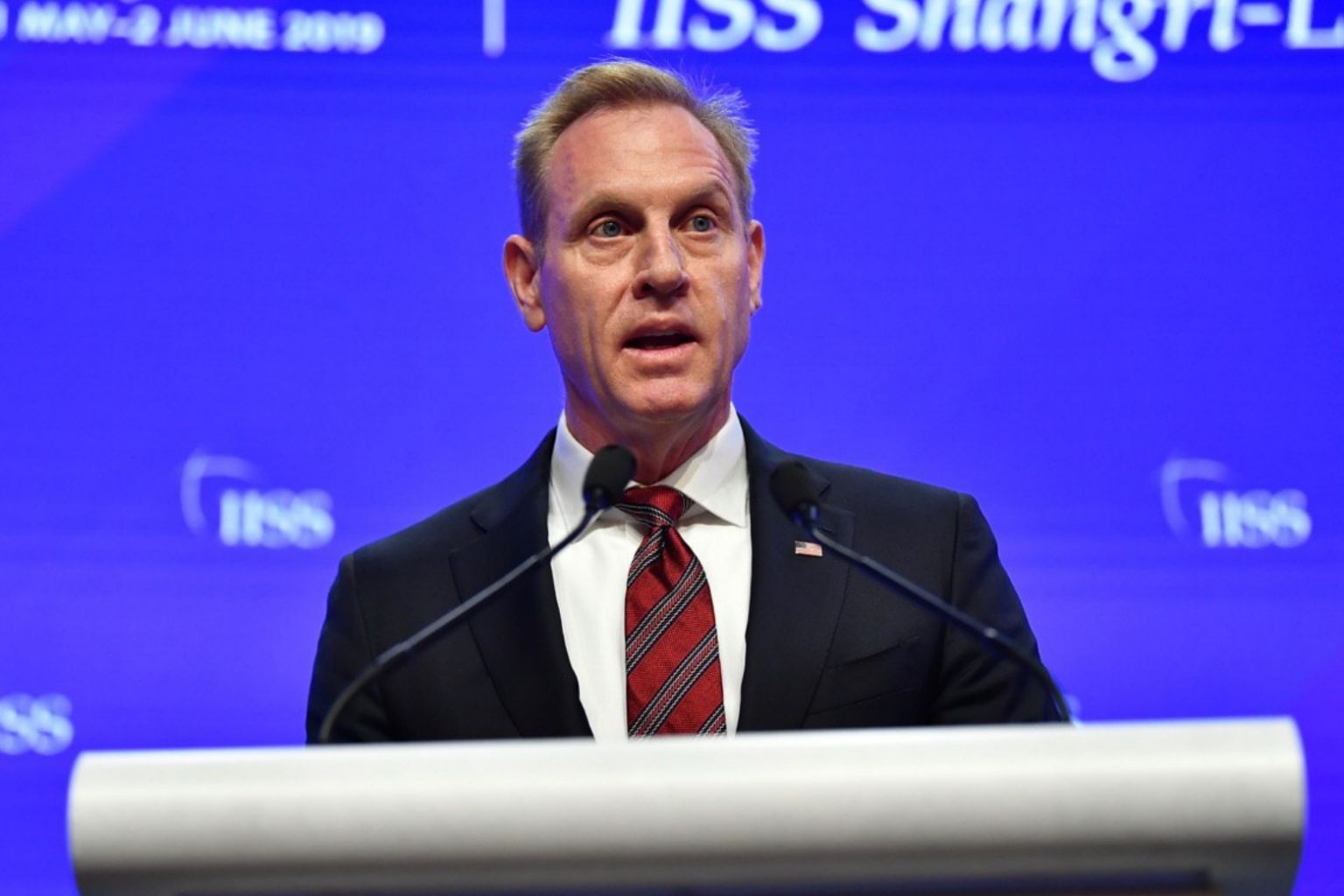Shangri-La Dialogue: 'Actors' that undermine rules-based order pose greatest threat to region, says US defence chief Shanahan
Sign up now: Get ST's newsletters delivered to your inbox

Acting US Defence Secretary Patrick Shanahan called on Asian allies to increase their security spending, while emphasising the United States' commitment to the region.
ST PHOTO: LIM YAOHUI
SINGAPORE - The greatest long-term threat to countries in the Indo-Pacific region are those that seek to undermine the rules-based international order, said Acting US Secretary of Defence Patrick Shanahan on Saturday (June 1), as he outlined his country's strategy in the region.
In an apparent reference to China at the Shangri-La Dialogue, he warned of "actors" that "undermine the system by using indirect, incremental actions and rhetorical devices to exploit others economically and diplomatically, and coerce them militarily".
"They destabilise the region, seeking to reorder its vibrant and diverse communities toward their exclusive advantage," he added.
Mr Shanahan did not name any country specifically, but accused such actors of having deployed advanced weapons systems to militarise disputed areas, alluding to China's military deployments in the South China Sea.
He also said the actors had used influence operations to interfere in the domestic politics of other nations, engaged in predatory economics and debt for sovereignty deals, and promoted state-sponsored theft of other nations' military civilian technology.
He warned: "If the trends in these behaviours continue, artificial features in the global commons could become tollbooths. Sovereignty could become the purview of the powerful."
"When a country makes a pledge and does not follow it, you should worry. When that same country makes no pledge … You should really worry."
Mr Shanahan's remarks come amid heightened tensions between Washington and Beijing on trade disputes and other issues such as the South China Sea.
Making his first major speech since taking over his role in January, he pledged the US' commitment to the region and said: "We can't wish away reality or continue to look the other way as countries use friendly rhetoric to distract from unfriendly acts.
"Now is the time to call out the mismatch between words and deeds by some in the region and encourage them to work constructively and transparently toward a positive future."
Highlighting the US' cooperation with countries in the region, he said it continues to make defence articles and services available to Taiwan.
"This support empowers the people of Taiwan to determine their own future," he added.
Later, in specific reference to China, Mr Shanahan said it has stood with the US and other countries as a cooperative partner in pursuit of shared goals such as regional security and stability, and also against imperialism, fascism and Soviet domination in the past.
"I say now that China could still have a cooperative relationship with the United States," he added.
"It is in China's interests to do so: no country has benefited more from the regional and global order than China, which has seen hundreds of millions lifted from poverty to increasing prosperity."
He said the US will cooperate with China where there is an alignment of interests and compete where necessary, though "competition does not mean conflict".
"Competition is not to be feared. We should welcome it, provided that everyone plays by internationally established rules. China can and should have a cooperative relationship with the rest of the region too," said Mr Shanahan.
But he added that "behaviour that erodes other nations' sovereignty and sows distrust of China's intentions must end".
"Until it does, we stand against a myopic, narrow, and parochial vision of the future, and we stand for the free and open order that has benefited us all-including China," he said.
A day earlier, Mr Shanahan had met China's Defence Minister Wei Fenghe on the sidelines of the annual defence summit in talks that both sides described as "constructive".
Speaking to The Straits Times on the sidelines of the summit, Chinese Lieutenant General He Lei slammed Mr Shanahan's remarks on Taiwan, saying that the US had crossed a red line and this amounted to interference in China's internal affairs.

He also took issue with the US defence chief's apparent reference to the South China Sea, saying that it was the US that was undermining freedom of navigation when its warships sailed near islands claimed by China earlier this year.
Pointing to how the US had pulled out of the Trans-Pacific Partnership trade pact, the Paris Agreement and the Anti-Ballistic Missile Treaty, he said the country had itself undermined the rules-based international order, and had no moral authority to point fingers at others.
During a question-and-answer session after his speech, Mr Shanahan stressed the importance of dialogue in preventing miscalculations and missteps in the region by both sides.
"I want to apologise for the way I frame some of my remarks, but we're not going to ignore Chinese behaviour. I think in the past people have had to float around that," he added.
"It's not about being confrontational, it's about being open and having a dialogue. I had a very good meeting last night with my counterpart General Wei, and it's about having communications. We need to talk about the things that potentially can create problems in the region."


